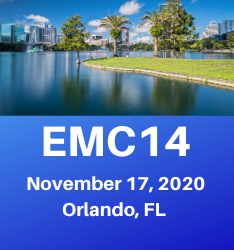|
|
|
|
|
NRG: New York Utilities, "Appear To Be Engaged In A Non-Transparent Regime Of Deferred Accounting"
The following story is brought free of charge to readers by EC Infosystems, the exclusive EDI provider of EnergyChoiceMatters.com
In comments to the New York PSC in a COVID proceeding, the NRG retail companies ("NRG") said that the PSC should deny, for the utilities, deferred accounting for all but an extremely limited number of costs that were incurred in
relation to the utilities’ strict compliance with governmental mandates related to COVID-19, as NRG further said that, should the utilities' financial health be a concern, such deferred costs should be incorporated into the price-to-compare, "so that consumers at least will have an
opportunity to bypass these charges by shopping for ESCO products and services."
"[U]tilities appear to be engaged in a non-transparent regime of deferred
accounting—making decisions that are, by their nature, predicated on utilities’ expectations of
future recovery of present-day losses or higher incremental costs from regulators. Investors,
customers, and energy service companies ('ESCOs') have been left to guess about what the
regulated utilities’ books and records actually contain. The Commission has not entered any
accounting orders that would justify entries of regulatory assets within Account 182.3 ('Other
regulatory assets') under the FERC Uniform System of Accounts," the NRG retail companies said
"Moreover, to the degree that these accounting deferrals encompass energy-related costs,
they cause utilities’ prices-to-compare to depart from the economic realities of the present
situation -- all on the assumption that utilities will be made whole later. This is inappropriate.
Eight months ago, the Commission issued its most recent order in a several-years long
proceeding and instituted a major reform of the competitive retail energy markets, which used
the price-to-compare as an essential component of what products would be permitted to be
marketed and sold to New Yorkers. If the price-to-compare is unmoored from the economic
realities of COVID-19 and its associated economy, then the logic of the Order Adopting Changes
to the Retail Access Market and Establishing Further Process (the 'Reset II Order') no longer
holds. The present situation underscores the need for the Commission to initiate the Phase 2
proceeding in the Reset II Order and expand, rather than artificially limit, the types of products
available to mass market customers," NRG said
"In this proceeding, meanwhile, the Commission should issue an accounting order that
denies deferred accounting for all but an extremely limited number of costs that were incurred in
relation to the utilities’ strict compliance with governmental mandates related to COVID-19," NRG said
"Additionally, the Commission should also temporarily revise utilities’ RDM [revenue
decoupling mechanism] tariffs," NRG said
"The RDM has a salutary effect in certain conditions, removing the disincentive to pursue energy efficiency policies. In the current situation, however, it will function to make the utilities whole even in the face of a significant decline in overall commercial economic activity in the State of New York. This is unjust and insulates utilities from the real-world economic realities of COVID-19 in which nearly all other people and businesses must participate," NRG said
With respect to the deferral and RDM issues discussed above, the NRG companies said, "the Commission either should require utilities to absorb these losses in their bottom line --
or, if it has concerns about the financial viability of utilities during this time, require those costs
to be incorporated into the 'price-to-compare' so that consumers at least will have an
opportunity to bypass these charges by shopping for ESCO products and services."
"[I]f the Commission does grant
deferred accounting treatment for any of these costs, either as a matter of policy or because it
believes those costs are material and impactful to one or more utility’s financial health, the costs
should be incorporated in the utility’s commodity price, giving customers the opportunity to
mitigate these costs by switching to a retail supplier," NRG said
"On a longer-term basis, the Commission should contemplate how it can properly allocate
risk within the retail market so that sophisticated market participants -- and not consumers -- are
expected to bear the financial consequences of an economic downturn: both in terms of rising
customer non-payment and lower sales volumes. The NRG Retail Companies point to the Texas
electric and Georgia gas retail markets as examples. In those states, competitive retailers are
responsible for billing and collecting from consumers. When consumers are unable to pay in
larger than expected numbers, as has occurred during the COVID-19 pandemic, those
consequences accrue to the bottom line of those retailers—not all other customers. This produces
a market where prices and ancillary fees reflect the expected risk of routine and even irregular
events like an economic downturn. And, more importantly, regardless of whether those
companies guess the magnitude of this risk correctly, the ultimate consequences of that risk’s
coming home to roost rests with these companies. This is a more appropriate and socially just
construct than the socialization of costs that New Yorkers presently experience," NRG said
"In addition, there are methods by which customers can enjoy protections from
disconnection even in the event of nonpayment in a competitive retail market. The competitive
electricity market in Texas has seen during the COVID-19 pandemic the introduction of an
Electricity Relief Program that protects affected customers from disconnection. It has not
suffered a spate of disconnections -- leading one to question why a regime that relies on a broader
socialization of costs to consumers (and not shareholders) would be preferred. The Commission
should undertake to ensure that all companies selling customers electricity and natural gas on a
retail basis have skin in the game," NRG said
"The COVID-19 pandemic has underscored the need for all sectors in private business to
participate in a just and equitable basis with the ups and downs of the wider economy.
Unfortunately, regulated utilities are largely insulated from this environment. New York should
require all companies to participate in their shareholders’ exposure to rising levels of consumer
bad debt and lower sales volumes," NRG said
"The Commission can do so by establishing a program in which both utilities and ESCOs
are permitted to bill customers for their consolidated electric and/or natural gas charges. In those
cases, the business sending the customer the bill should own the risk of customer non-payment or
declining sales volumes -- without regulatory instruments that would make them whole. The
NRG Retail Companies recommend the Commission establish a process by which a transition to
a more just outcome where companies participate in the trends of the wider economy. Such a
market already exists in Texas, where 95% of customers are billed by a competitive retailer that
assumes the financial risk associated with an economic downturn. Additionally, this market
structure has proven during the COVID-19 pandemic to be compatible with necessary public
assistance measures. In the Texas competitive market, more than 560,000 households are being
protected from disconnection, with ESCOs’ receiving a $0.04 per kilowatt-hour reimbursement
for uncollectible energy charges associated with those customers.4 By design, this payment is not
enough to make whole those ESCOs -- it strikes a balance between protecting customers and
ensuring that those who supply customers continue to have skin in the game. Of course, ESCOs
that experience lower sales volumes also absorb that risk, in its entirety. A successful
competitive market in New York would have similar features," NRG said
"More immediately, the NRG Retail Companies urge the Commission to carefully
consider the social needs of New Yorkers in making a decision on how to resume collections and
terminations. It should consider establishing a targeted program, for which both utility and
ESCO supply customers are eligible, that furnishes a certain, fixed subsidy to customers
substantially in arrears and who are facing financial hardship as a result of COVID-19 and its
related economic effects. Such a program could be funded through a surcharge on the
distribution side of the bill. The Commission could inquire into using existing databases of
public support to qualify customers for support. Such a program could be compatible with both
the current retail market structure in New York, as well as one more adapted to having all
retailers’ having skin in the game, as described above," NRG said
"Any rate relief should be provided to all ratepayers on the distribution charges portion of
their bill, regardless of whether they choose ESCO supply service or default to utility supply
service. Rate relief should be agnostic as to the supplier, as all ratepayers in New York are
grappling with the effects of the pandemic," NRG said
Case 20-M-0266
ADVERTISEMENT Copyright 2010-20 Energy Choice Matters. If you wish to share this story, please
email or post the website link; unauthorized copying, retransmission, or republication
prohibited.
Proposes Deferred Costs Be Included In Bypassable Price To Compare, If Utilities' Financial Health Is A Concern
July 15, 2020
Email This Story
Copyright 2010-20 EnergyChoiceMatters.com
Reporting by Paul Ring • ring@energychoicematters.com
NEW Jobs on RetailEnergyJobs.com:
• NEW! --
Billing Specialist -- Retail Supplier
-- Texas
• NEW! --
Director - Distributed Generation, Demand Response, & Market Participation -- Houston
• NEW! --
Retail Energy Account Executive -- Houston
• NEW! --
Business Development Manager
|
|
|
|









